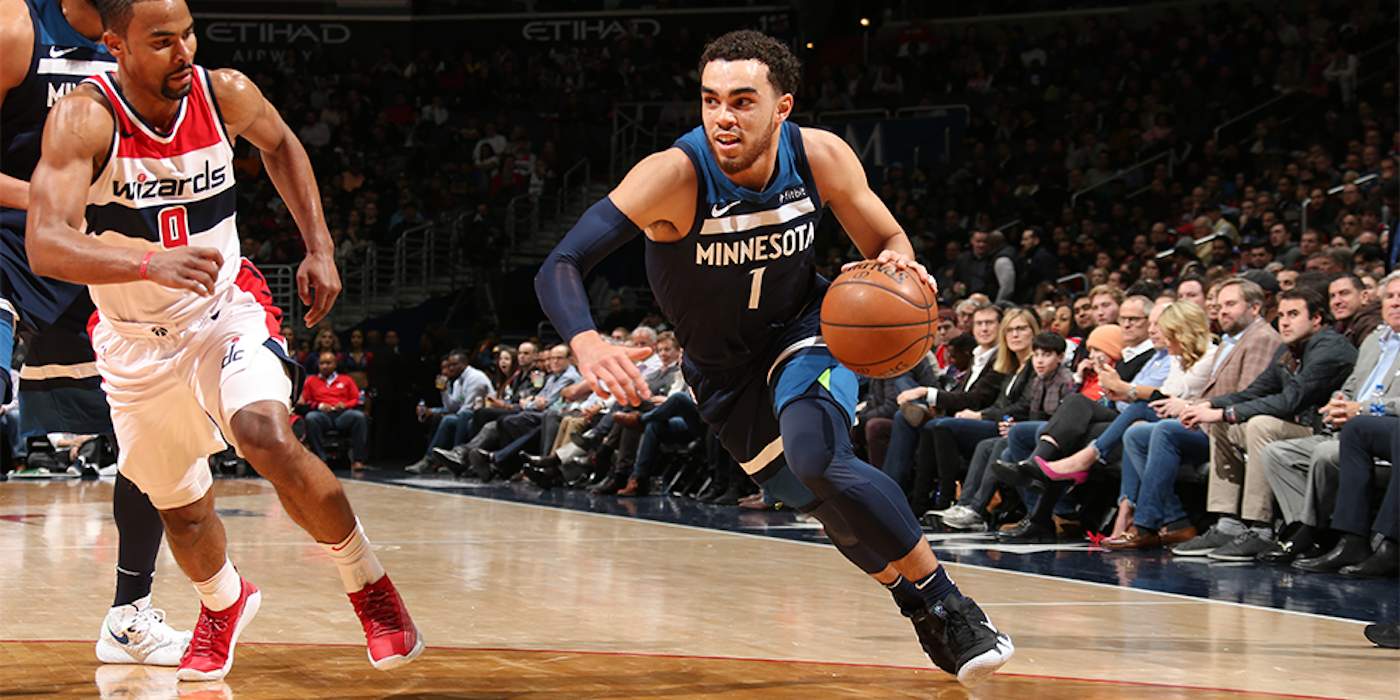By Dylan Murphy
In the NBA, the relationship between talent and results is not linear. Put another way, a team with two superstars is not twice as a good as a team with one superstar. In fact, there is a diminishing return with each subsequent major talent addition. A fully healthy DeMarcus Cousins joining the Warriors, for example, will not have nearly the same impact as his joining another team.
With only one ball to share, fit becomes critical. Take the Houston Rockets, whose well-constructed roster nearly defeated the Warriors in the playoffs despite having only two perennial All-Stars compared to Golden State’s four. Houston nearly overcame a perceived talent gap because P.J. Tucker, Eric Gordon, Trevor Ariza and Clint Capela perfectly complemented stars James Harden and Chris Paul.
Though they aren’t in the same stratosphere as the Warriors and Rockets, the Timberwolves face their own predicament when it comes to talent vs. fit. Minnesota’s starting lineup—Karl-Anthony Towns, Taj Gibson, Jimmy Butler, Andrew Wiggins and Jeff Teague—is an impressive collection. But it didn’t produce optimal results. In fact, the lineup that included four starters and backup point guard Tyus Jones—in place of Teague—posted the team’s highest net rating by a decent margin, with a small bump on offense and a significant boost on defense.
Click to login
subscribers only.
Purchase the complete Insider archives
including close to 200 articles
for just $50
Buy Now

